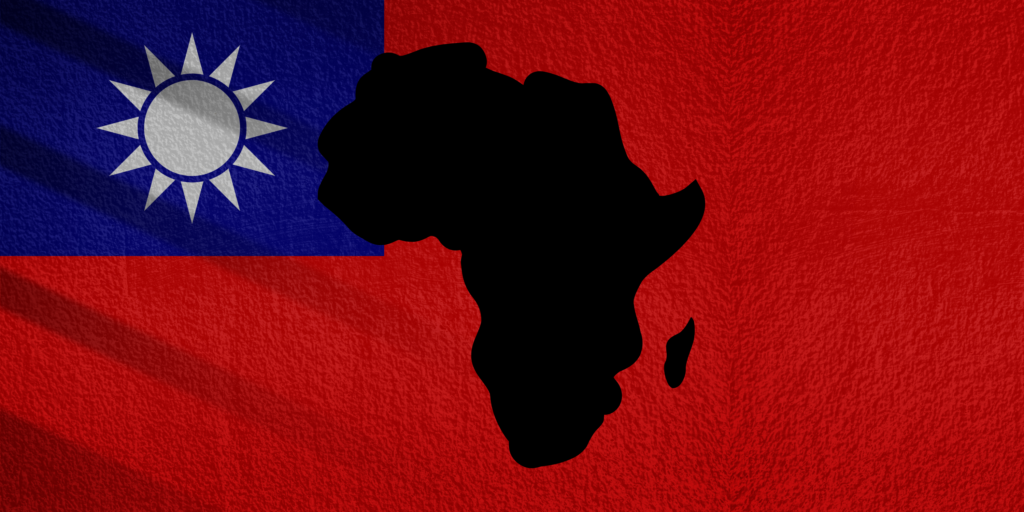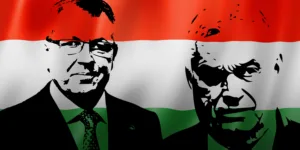The South African government has called on Taiwan to relocate its representative office from the capital, Pretoria, to the commercial center of Johannesburg. While the South African government denies such claims, this shift is widely attributed to pressure from China.
Since Tsai Ing-wen assumed office in 2016, Beijing has intensified efforts to undermine Taiwan’s official and unofficial relations with their countries, effectively ending the informal diplomatic truce established during the Ma Ying-jeou era. In the years since, China has successfully persuaded a number of Taiwan’s official diplomatic allies to switch allegiance, reducing the number of Taiwan’s formal allies from 22 in 2016 to just 12 today — 11 United Nations member states and the Holy See. However, China’s efforts extend further, as Taiwan’s engagement even with unofficial partners is often contingent on the state of relations between Beijing and the respective country.
Taiwan-South Africa: From Allies to Unofficial Ties
The relationship between Taiwan and South Africa is rooted in a shared history of political and diplomatic complexities. During the 1950s and 1960s, as many African nations gained independence, both the Republic of China (Taiwan) and the People’s Republic of China (China) actively sought diplomatic allies on the continent. Both asserted themselves as the sole legitimate representative of China and used diplomatic allies in Africa to support their individual claims — which were mutually exclusive, making diplomatic recognition a zero-sum game. Immediately after 1949, several countries had no relations with either side, as they were waiting for a final settlement. Taiwan first made a connection with South Africa, then one of three independent African countries. South Africa was a staunch anti-communist country strongly opposed to the PRC’s admission to the UN.
After the end of the Cold War, the ideological rationale (anti-communism) for diplomatic recognition became obsolete, as did the rationale for many countries to maintain relations with Taiwan. Countries now often switched support without any clear ideological or political rationale. Taiwan managed to maintain diplomatic relations with South Africa until 1998, supported in part by its financial backing of the African National Congress during the 1994 elections and beyond.
In the 1990s, as China implemented reforms and achieved double-digit GDP growth, ideological considerations gave way to economic priorities. Beijing leveraged its growing economic power to court Taiwan’s key allies, including South Africa. Today, Taiwan is left with one official diplomatic ally, Eswatini, and has unofficial presence in South Africa, Somaliland, and Nigeria.
After South Africa severed diplomatic ties with Taiwan in 1998, the two sides renegotiated their relationship to maintain unofficial representation. Taiwan established the Taipei Liaison Office in Pretoria and a branch in Cape Town, while South Africa opened a reciprocal liaison office in Taipei. These offices became the backbone of continued trade, cultural exchanges, and other forms of engagement. Despite the informal nature of these ties, Taiwan has remained a significant investor in South Africa’s manufacturing and agricultural sectors. The presence of approximately 5,000 South African English teachers in Taiwan further underscores the enduring connections between the two nations.
Diplomatic Strain: South Africa’s Taipei Office Relocation
After more than two decades of maintaining unofficial ties, South Africa officially instructed the Taipei office in Pretoria to relocate to Johannesburg, giving it six months to comply. In April, the government issued the initial directive, and in October, it followed up with an ultimatum demanding the office vacate Pretoria before the end of the month or face closure.
The justification of this move from South Africa’s side referenced the Resolution 2758 of the United Nations General Assembly and added that the move “will be a true reflection of the non-political and non-diplomatic nature of the relationship” between the two sides. South Africa’s Department of International Relations and Cooperation (DIRCO) argued that “Johannesburg, South Africa’s economic hub, is a more appropriate location for the office”, aligning with “standard diplomatic practice that capital cities are the seats of Foreign Embassies and High Commissions.”
If such a “standard diplomatic practice,” as described by the DIRCO spokesperson, was not raised over the past 25 years, why the sudden urgency now? Unsurprisingly, the relocation demand came on the heels of two developments. The first, Chinese President Xi Jinping’s visit to South Africa for the 2023 BRICS summit. The second, South African President Cyril Ramaphosa attended the China-Africa Cooperation Forum (FOCAC) in Beijing in September, further cementing ties with China. The summit underscored Beijing’s growing emphasis on the political dimensions of its relationships in Africa, complementing its established economic influence. Notably, South Africa secured deals at FOCAC to boost its agricultural exports to China. This series of events strongly suggests that Pretoria’s decision to relocate the Taipei office is driven less by administrative considerations and more by South Africa’s growing alignment with Beijing’s geopolitical agenda.
South Africa is not the first country to request such a relocation from Taiwan; similar moves have occurred when various other governments sought to improve relations with Beijing. In 2017, Nigeria ordered Taiwan’s liaison office to move from the capital, Abuja, to the commercial center of Lagos. Additionally, it demanded the removal of the words “Republic of China (Taiwan)” from the office’s name and required a reduction in its staff. The Nigerian government even sent 25 police officers to seal off the office and remove its officials. China’s Ministry of Foreign Affairs praised Nigeria’s actions, stating they demonstrated the country’s “staunch support” for Beijing’s “One China” Principle. Such precedents underscore how geopolitical alignment with Beijing often comes at the expense of Taiwan’s international representation.
Diplomatic Deadlock: Is a Compromise Possible?
While the deadline has already passed, the issue remains unresolved, and the outcome is difficult to predict. Historically, there have been instances of both compliance and resistance in similar situations. In the case of Nigeria, while Taiwan protested and attempted to negotiate, it ultimately complied. The Taipei office was relocated to Lagos and reopened under the name “The Taipei Trade Office in the Federal Republic of Nigeria.” In response, Taiwan reciprocated by demanding the relocation of the Nigeria Trade Office in Taipei, which subsequently moved to the Banqiao District in New Taipei.
There are, however, examples of impasses being resolved without compliance. Other countries that do not maintain formal diplomatic relations with Taiwan — namely Bahrain, Jordan, the United Arab Emirates, and Ecuador — requested that Taiwanese representative offices in their countries be closed. Despite these demands, the offices remain operational. These precedents suggest that while the situation is challenging, a negotiated resolution is still within the realm of possibility.
For now, the good news is that negotiations are underway. While the outcome remains uncertain, South Africa has shown a willingness to continue discussions with Taiwan, and no relocation has occurred yet. Taiwan’s current policy, as stated by its Foreign Ministry, is firm: “We will not move.” During the negotiations, Taiwan has leveraged its bargaining power by offering to ensure a stable supply of semiconductors to South Africa, a critical factor given the country’s significant automobile industry — the largest in Africa. Taiwan has also highlighted the presence of a considerable number of South Africans living in Taiwan, who may fear potential retaliatory measures.
Taiwan’s potential reciprocal measures could include requesting the relocation of South Africa’s representative office in Taipei, implementing stricter visa requirements for South African travelers (who already face significant hurdles obtaining even just tourist visas), suspending bilateral educational exchanges, or even cutting semiconductor supplies to South Africa’s automotive industry (a cornerstone of South Africa’s economy).
Pressure on South Africa has come not only from Taiwan but also from some of its own lawmakers. Additionally, countries such as the United States, Japan, and the Czech Republic have urged the South African government to reconsider its decision and withdraw the request.
These developments underscore the complexity of the situation, which extends far beyond bilateral ties between South Africa and Taiwan. The issue is deeply intertwined with broader geopolitical dynamics, reflecting not only the growing influence of Beijing but also the challenges faced by Taiwan in preserving its international representation and maintaining its relationships with unofficial partners.
For South Africa, the decision underscores the balancing act between its economic priorities tied to China and engagement with global partners who value Taiwan’s contributions to regional stability.
Ultimately, this standoff serves as a litmus test for Taiwan’s resilience in navigating a diplomatic landscape increasingly dominated by Beijing’s tactics. The resolution — whether through compliance, compromise, or resistance — has the potential to reshape relationships and influence the balance of power.
The article was originally published by The Prospect Foundation.






